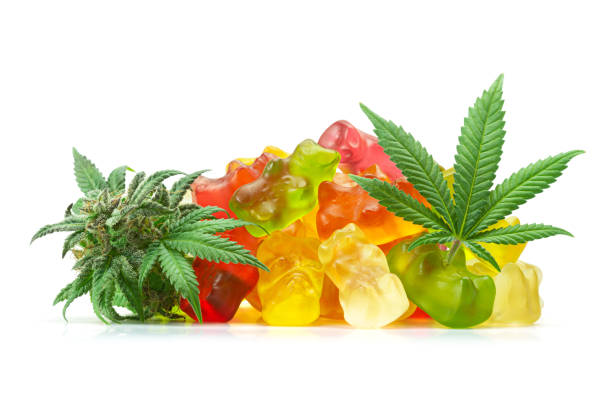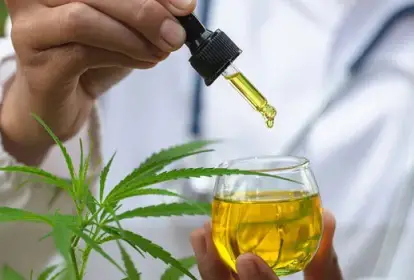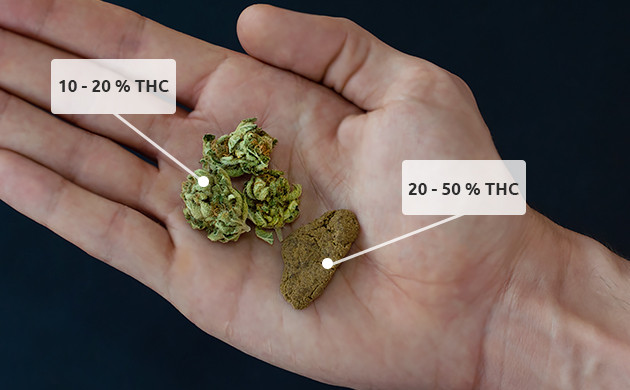
Neuroplasticity and Cannabis: How THC May Rewire Learning Pathways
The human brain is not a static organ. It has the remarkable ability to adapt, reorganize, and form new connections
FREE SHIPPING ON ORDERS OVER $99 | 10 points = $1

For centuries, cannabis has been more than a recreational plant—it has been a tool for reflection, ritual, and self-discovery. Today, as the conversation around psychedelics, plant medicines, and mindful living grows, many are rediscovering how THC can guide them toward deeper introspection. Unlike high-dose psychedelic journeys, cannabis offers a more accessible entry point—one that blends relaxation with self-awareness.
In the same wellness space, people are also experimenting with CBD edibles, LSD edibles, and MDMA edibles, each with their own unique effects. While THC provides a gentle doorway to self-reflection, comparing it to other substances highlights its distinct role in shaping mindful inner journeys.
Introspection is the process of looking inward—examining thoughts, feelings, and behaviors with curiosity and compassion. THC, when used intentionally, can encourage this practice by:
When paired with mindfulness techniques—like meditation, journaling, or breathwork—cannabis can shift from being a recreational high to becoming a spiritual and psychological tool.
Cannabis is often described as a “softer” plant ally compared to classic psychedelics like psilocybin, LSD, or MDMA. Each substance has its place in the landscape of personal growth:
Unlike THC, CBD edibles do not create a “high.” Instead, they reduce anxiety, promote relaxation, and balance the mind-body connection. Many people use CBD alongside THC to soften its intensity and make introspection feel gentler and more grounded.
LSD edibles can induce powerful, long-lasting psychedelic experiences marked by altered perception and deep insights. While LSD is often linked to creativity and cosmic awareness, it requires careful preparation due to its intensity. Compared to LSD, cannabis offers a shorter, more manageable introspective window.
MDMA edibles are known for enhancing empathy, emotional openness, and connection with others. While often associated with therapeutic breakthroughs, MDMA’s neurochemical effects are stronger than THC’s. Where cannabis fosters subtle emotional exploration, MDMA can bring overwhelming waves of intimacy and vulnerability.
Cannabis often serves as a gateway to mindful practices because it sits between the familiar and the profound. It’s not as overwhelming as LSD or MDMA, yet it can gently nudge individuals toward self-awareness.
Some ways THC supports this role include:
If you’re curious about using THC to explore your inner world, consider these practices:
While cannabis can open doors to self-awareness, it isn’t risk-free. Potential downsides include:
This is where comparisons to LSD edibles and MDMA edibles become important: unlike cannabis, these substances often create profound emotional breakthroughs that require careful integration. THC, on the other hand, offers gentler lessons but still benefits from post-session reflection and lifestyle alignment.
In modern wellness culture, people are blending different tools—psychedelics, plant medicines, meditation, breathwork, and therapy. Cannabis fits uniquely into this spectrum. It is:
By weaving cannabis into a mindful framework, individuals can turn a simple THC session into a journey of self-discovery.
Cannabis is more than a way to relax—it’s a gateway to mindful introspection. When used intentionally, THC can help individuals explore emotions, unlock creativity, and deepen their connection to self.
While CBD edibles, LSD edibles, and MDMA edibles all play different roles in the broader landscape of consciousness exploration, cannabis remains one of the most versatile and accessible allies. Its gentle yet profound effects make it a powerful starting point for anyone curious about using altered states as tools for growth.
Whether through a quiet evening with a low-dose THC edible, or a ritual paired with meditation, cannabis journeys can transform the ordinary into a path toward deeper self-awareness and healing.

The human brain is not a static organ. It has the remarkable ability to adapt, reorganize, and form new connections

In our fast-paced world, many people accumulate what’s known as sleep debt—a deficit that builds when you consistently sleep fewer